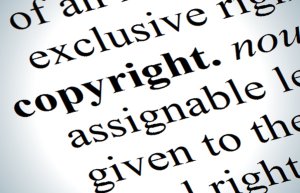 A group of 18 music industry organizations, representing songwriters, publishers and musicians, filed comments last week with the U.S. Copyright Office in response to the office’s congressionally ordered inquiry into the operation and effectiveness of Section 512 of the Digital Millennium Copyright Act, otherwise known as the “safe harbor” provisions of the law.
A group of 18 music industry organizations, representing songwriters, publishers and musicians, filed comments last week with the U.S. Copyright Office in response to the office’s congressionally ordered inquiry into the operation and effectiveness of Section 512 of the Digital Millennium Copyright Act, otherwise known as the “safe harbor” provisions of the law.
And to make a long filing short: they don’t think it’s working very well at all.
As discussed in a previous post here, people in the copyright industries have been pining for years for a do-over of the safe harbors and notice-and-takedown procedures, which they claim have amounted to a get-out-of-jail-free card for online infringement, and the music groups came prepared.
Their 70-page filing (including appendices) is chock full of colorful charts and graphs, footnoted legal arguments, and research findings, all purporting to demonstrate conclusively that the Section 512 bargain, which was intended to provide a limit on the liability of online technology providers for infringement by their uses while creating legal tools for copyright owners to get infringing content removed from the web, has been rendered null and void by advances in web technology and overly narrow interpretations of the law by the courts.





 Academic work is pirated for much the same reasons that music was in the early 2000s—not just because people prefer to get something for free, but because the industry’s distribution model is deeply broken. Academic publishing is dominated by for-profit companies including Reed Elsevier, Taylor & Francis, and Sage, and many university libraries, even at large research institutions, can’t afford the high subscription fees for all of the journals their faculty need.
Academic work is pirated for much the same reasons that music was in the early 2000s—not just because people prefer to get something for free, but because the industry’s distribution model is deeply broken. Academic publishing is dominated by for-profit companies including Reed Elsevier, Taylor & Francis, and Sage, and many university libraries, even at large research institutions, can’t afford the high subscription fees for all of the journals their faculty need.
 Comcast today announced that it has entered into a content licensing agreement with The Walt Disney Studios to start offering a selection of digital library titles and new releases as they become available from Disney, Walt Disney Animation Studios, Disney•Pixar, Marvel Studios, Lucasfilm, Disneynature and Touchstone Pictures via the Xfinity On Demand digital store. Effective immediately, customers can buy Star Wars: The Force Awakens, the latest blockbuster hit in the Star Wars franchise just released on Digital HD and SD directly from their TV or via the Xfinity TV website to enjoy the film at home or on the go.
Comcast today announced that it has entered into a content licensing agreement with The Walt Disney Studios to start offering a selection of digital library titles and new releases as they become available from Disney, Walt Disney Animation Studios, Disney•Pixar, Marvel Studios, Lucasfilm, Disneynature and Touchstone Pictures via the Xfinity On Demand digital store. Effective immediately, customers can buy Star Wars: The Force Awakens, the latest blockbuster hit in the Star Wars franchise just released on Digital HD and SD directly from their TV or via the Xfinity TV website to enjoy the film at home or on the go.
